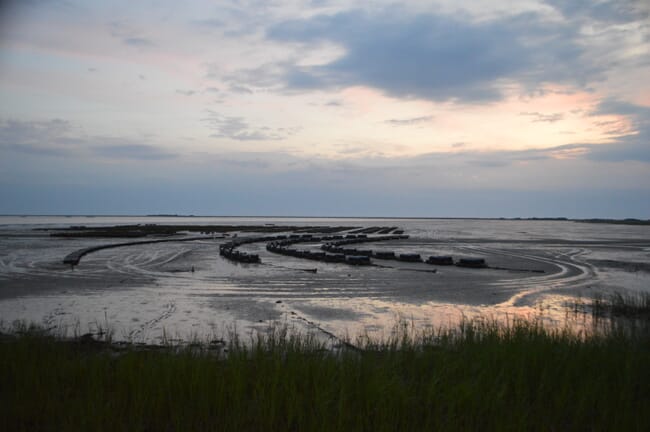
Despite a thriving shellfish farming sector, the US currently has very few marine finfish farming operators © James Miller, TNC
The House Aquaculture Caucus, introduced this week, has been established to educate members of Congress about the economic opportunities that an expanded US aquaculture industry could provide. The caucus will also provide policy updates and share initiatives in Congress that will help make American aquaculture more competitive globally.
In addition to the co-chairs, the introductory caucus members include Salud Carbajal, Jerry Carl, Buddy Carter, Rick Crawford, Scott Franklin, French Hill, Maria Salazar, Abigail Spanberger and Rob Wittman.
“SATS thanks Reps. Cammack, Case, Palazzo and Panetta for establishing a congressional caucus for lawmakers to learn about the benefits that a robust aquaculture industry would provide communities nationwide,” said Horace Dawson, III, General Counsel of Red Lobster and Member of SATS. “The growth of American aquaculture would create new jobs across the seafood supply chain while supplying our communities with local, sustainable seafood. For the US to realise the full economic potential of aquaculture, federal legislation is needed.”
“An aquaculture caucus is welcome news. As we look to feed a growing population and increase the security of our nation’s seafood supply, offshore marine aquaculture must play a critical role,” said Don Kent, CEO, HSWRI and Pacific Ocean AquaFarms, and SATS Advisor. “The more we can educate on the fact that the ocean is an amazing untapped resource, the sooner we can realize the potential of offshore aquaculture for sustainably expanding the U.S. industry.”
"Aquaculture should be one of the United States' priorities as we grow our focus on food security. In Florida, we've seen the benefits of aquaculture firsthand, breeding, raising, and harvesting shellfish, fish, and aquatic plants in our waters. We've demonstrated that it's possible to provide healthy, fresh food that's produced sustainably at home to support our growing population," said Congresswoman Cammack. "The Aquaculture Caucus shares our enthusiasm for pushing these industries and their innovations forward while growing our infrastructure and market domestically."
"Aquaculture has always held great promise to help us achieve our broader goals of creating sustainable food systems and responsibly managing our marine resources," said Congressman Case. "Congress should focus more directly on how best to mold federal policy to realize the full potential of American aquaculture. Our new Aquaculture Caucus will provide that focus as we clarify often confusing and contradicting regulatory schemes while ensuring that we protect our marine environment."
"Since first introducing the Advancing the Quality and Understanding of American Aquaculture Act (AQUAA) in 2018, the conversation on expanding our nation's aquaculture industry has only grown," said Congressman Palazzo. "The fact of the matter is, the United States is missing out on an incredible economic and sustainable opportunity to grow aquaculture on our own shores, creating more American jobs. I’m proud to be a part of the new Aquaculture Caucus and look forward to the conversations and ideas this caucus moves forward."
"It is reported that we import well over three-quarters of the seafood that we consume in the United States. Aquaculture can play an important role in reducing our reliance on other countries for fish and increase our consumption as well as our domestic production of sustainable seafood," said Congressman Panetta. "The bipartisan Congressional Aquaculture Caucus will work to create policies to support not just a sustainable source of food that can create jobs, but also ensure that it's economically feasible and environmentally friendly."
The US currently ranks 17th in global aquaculture production. Of the total $281.5 billion global aquaculture market, US production is valued at $1.5 billion (0.5 percent), and the country imports up to 80 percent of its seafood.



